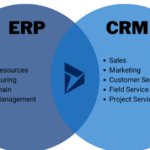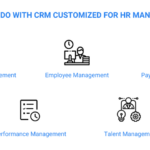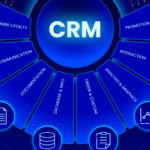Implementing the Use of CRM Applications
A CRM system is not merely an instrument of management – it’s a new way of approaching work altogether. When a company decides to employ a CRM app to increase their efficiencies and make more revenue, this is a dedication to creating clear procedures which streamline day-to-day operations. While a company may choose to implement a CRM platform with this philosophy in mind, it will take planning and thoughtful strategy to get the whole team on board.

Learning about a CRM System
As with any major changes to the usual operations of a business, employees need to feel supported and appreciated during the process. It may be wise to choose a member of the management team to immerse themselves into everything there is to know about the full capabilities of the company’s new CRM system. There are sure to be employees who start out excited to learn how to make their jobs easier with CRM applications whereas others may need more attention to feel motivated to try something new.
Your dedicated manager who learns all there is to know about the CRM is a valuable asset for both sets of employees. For the excited crowd, the manager is able to answer various quick questions about usage and keep the excitement alive. For those who are skeptical, the manager has the know-how to get into the weeds and help explain the benefits of the new CRM system.
What does the CRM abbreviation stand for?
If you’re still new to CRM and are wondering what “CRM” stands for, the abbreviation stands for “Customer Relationship Management.” This sounds a little too specific, as though this pertains only to customer service, but, CRM systems were developed with the understanding that all procedures of a business, from executive planning to delivery of a product, affect customer satisfaction and, in turn, whether or not a business will thrive.
Without paying customers, a business folds. CRM also stands for all the processes which both streamline optimal service and allow for managers to get out of time-consuming, administrative tasks through automated CRM applications so there is more time to strategist about what the customer base wants to continue to buy.
In 2019, CRM stands for all the automated reports the system provides to make larger decisions, like where to cut corners on inventory, much faster and easier to make. It’s not just about politely answering questions on the phone – the CRM abbreviation stands for all the processes which make customers feel valued enough to stick with your company rather than move over to a competitor.
Who sees the benefits from using a CRM system?
When properly implemented, everyone who comes within reach of your business benefits from a CRM system. Business owners have access to everything they may need to know about real-time work progress or the history of customer communication at the click of a button. Employees know what is expected and how to do perform with clear communication and reporting processes within the CRM platform.
Customers that don’t have to repeat information and receive the service they deserve often stay loyal to a brand. When customers see the faster, more attentive service a CRM can provide, the bottom line and profits increase. Happy customers tell their friends and family and act as “free advertising” which is less costly than generating new leads.
What does implementing the use of a CRM application do to help your business?
With real-time information at your fingertips, it’s easier to create stronger relationships with your customers. A CRM system supports communication between a company and a customer to keep essential personnel in-the-know. For example, if a client has an ongoing issue and needs to speak with more than one person, if the client has to explain the situation repeatedly, they will likely entertain the thought of choosing a company which will pay closer attention their needs. A CRM system will record all the troubleshooting efforts and up-to-date feedback to avoid this frustration and move work forward more smoothly. You can better support your loyal customers and give them something to brag about to potential customers with the increased efficiency gained from employing the many helpful features of a CRM application.
Ensure employees continue to use a CRM platform by asking for their feedback after a free trial.
CRM Runner offers a 30-day trial to give your team time to learn about the CRM system and see which features are most beneficial to operations. When you ask your team for their feedback using the system, you empower them to feel a part of the greater philosophy of the company and motivate them to really give the CRM platform a chance.
Employees will begin to notice how much more efficient their day to day is. After continued use it’s common for staff to begin to view the new product and processes as assets. A powerful CRM system will easily prove to team members that there is a better way to track projects, time and customer communication. A successful implementation will leave employees and business managers excited about the growth potential a new CRM system can provide. Check out the features and start a free trial by signing up here.






0 Comments